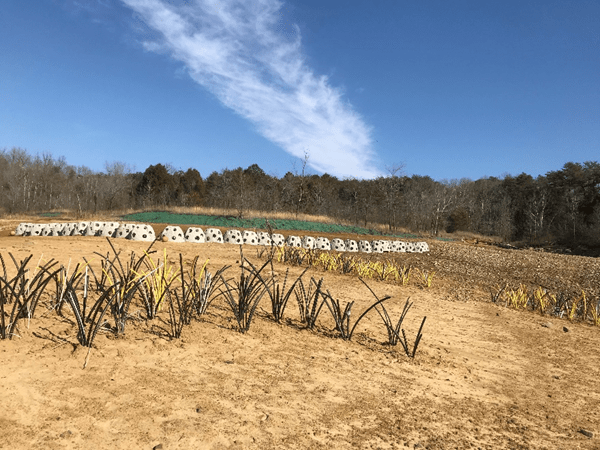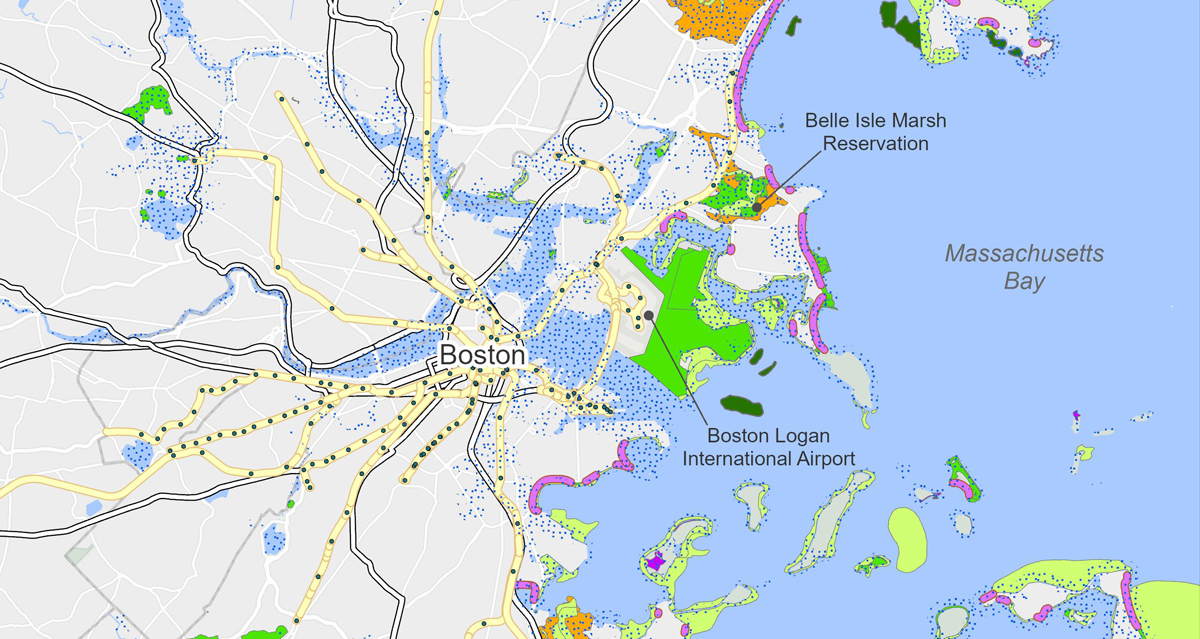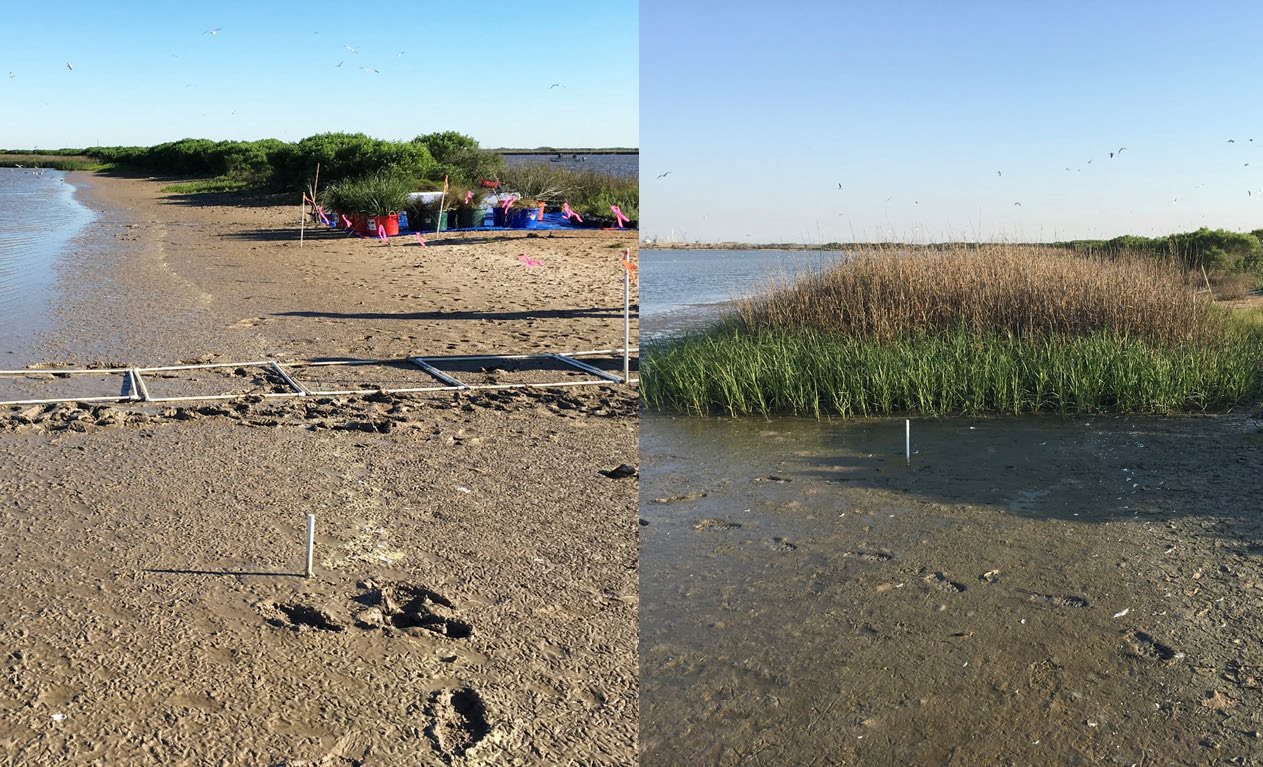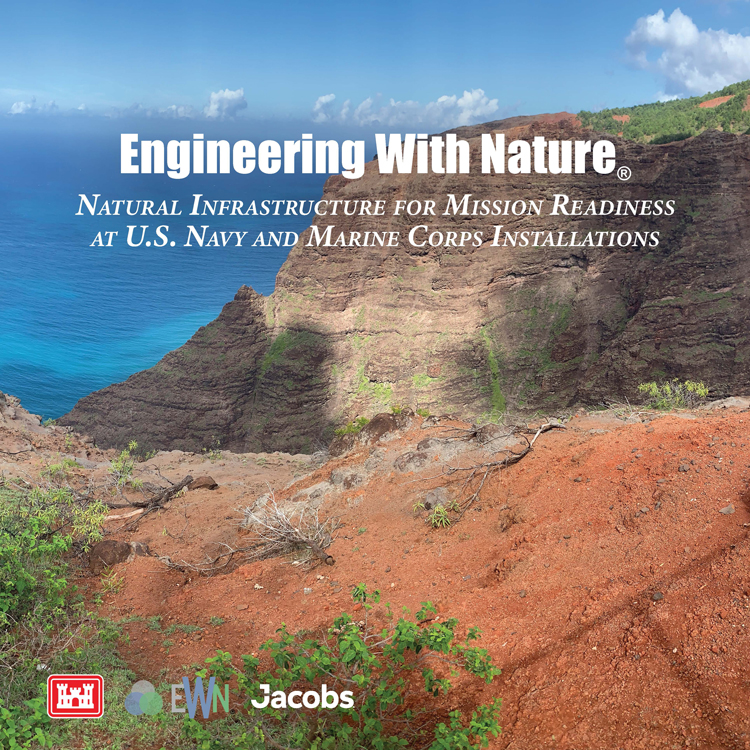EWN researchers alongside personnel from the USACE Louisville District (LRL) Nolan River Lake, embarked on a series of site visits during the week of January 30, 2023. The objective was to conduct comprehensive assessments of existing shoreline protection strategies, discuss adaptive management approaches, and lay the groundwork for future EWN applications.

One of the central focal points of this undertaking was not only to evaluate the efficacy of shoreline protection methods but also to explore the potential for enhancing aquatic habitats that offer a broad spectrum of benefits. Fig. 1 visually demonstrates the organic regrowth and bank stability that have taken place since the construction of the Point project in 2017.
Amidst the dynamic context of reservoirs as vital public recreational spaces, shoreline erosion emerges as a pressing concern. Addressing this challenge is crucial not only to maintain reservoir storage capacity, water quality, and recreational activities but also to support aquatic ecosystems. Nolan River Lake, like many others in the USACE project portfolio, contends with varying geological compositions, fluctuating water levels, waves, and more, all of which contribute to accelerated shoreline erosion.
The traditional approaches of establishing native aquatic and terrestrial vegetation for erosion control struggle to keep up with the lake’s ever-changing shoreline dynamics. Excessive erosion results in sediment buildup, reduced reservoir capacity, and obstructed navigation channels downstream.
In pursuit of resilient solutions, LRL has taken notable strides by implementing Engineering With Nature® (EWN®) pilot projects. Employing strategies like limited riprap and reef balls, these projects not only mitigate erosion but also introduce habitats within the nearshore area. EWN and LRL are collaboratively exploring ways to amplify the mutual engineering and ecological benefits of these initiatives, encompassing both adaptive management techniques and the integration of additional ecological features.
The ongoing investigations are poised to inform the development of a comprehensive EWN® shoreline stabilization manual. Leveraging data and insights from existing project monitoring, as well as the incorporation of adaptive measures like woody-debris addition, locked-logs deployment, and modified shoreline protection designs, this document aims to lay the groundwork for a holistic approach to shoreline management. The social benefit of enhanced recreational opportunities around Nolan River Lake are also integral aspects of this research. For more information about the social, economic, and ecological benefits achieved through USACE Stewardship mission, view USACE Recreation Fast Facts.





